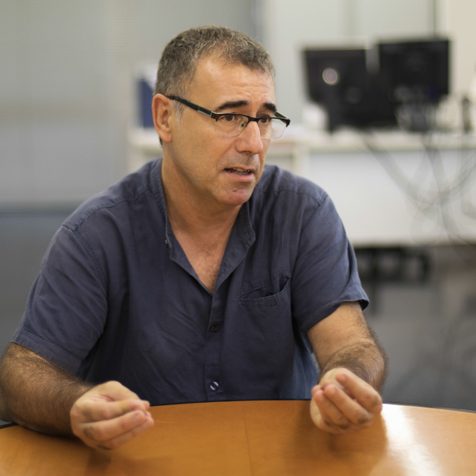European Sociological Association – Research Network 10
The Research Network Sociology of Education (RN10) aims at enhancing cooperation among sociologist of education in Europe. European countries nowadays face many changes in the functioning of educational systems. Increasing diversity is generally considered one of the main challenges. Moreover, there is a continuing expansion, with outcomes that are equally positive and negative for specific social groups and for societies at large. Investigating these processes, with the objective to preserve social cohesion and stability, is one of the most important tasks of current educational sociology. The aim of the Research Network Sociology of Education (RN10) is to provide a forum for a variety of educational research, ranging from broad comparative research to everyday practices and processes in school, at all levels of formal education.
For more information about our research network, please visit our webpage.
The biennial Mid-Term Conference of the RN10
15-16 September 2022
The Research Network 10 (Sociology of Education) of the European Sociological Association is joining forces with the SSRE (Swiss Society for Research in Education), the AECSE (Association of Teachers and Researchers in Educational Sciences), and ABC-Educ (The Belgian French-speaking Collaborative Association for Educational Research) as well as the OBSEF (Education & Training Observatory) of the Faculty of Social and Political Sciences of the University of Lausanne to organise the International Week of Education and Training (SIEF) which will take place at the University of Lausanne from 12 to 16 September 2022.
Keynote Speakers
ESA RN10 conference will welcome two keynote speakers. Keynote lectures (in English) will take place on 15 and 16 September. We introduce our keynotes speakers below.
Thursday 15 September
“Top down and bottom-up narratives of equality and inclusion in education: the example of policies of widening participation in higher education”
This presentation will focus on the various widening participation (WP) schemes that have been implemented in French higher education institutions (HEIs) since 2001 and especially on the Sciences Po’s initiative, “Conventions Education Prioritaires” (CEP) to explore, on the one hand, the visions of equality and inclusion on discourses about these schemes by HEIs directors and national policy-makers and, on the other hand, how these schemes have been interpreted and implemented by HEIs and schools and how they have been perceived and experienced by their beneficiaries. Using data on these schemes collected through a long-lasting ethnographic study including analysis of websites and documents, interviews with policy-makers, managers, teachers and students as well as observations of WP activities in schools and HEIs, the presentation will highlight the key role of these schemes on moving from a collectivistic to an individualistic model of equality and inclusion as well as the convergence and tensions between top down and bottom up narratives.
? UNIL Anthropole – 1031, 16:45 – 18:15

By Agnès van Zanten, Directrice de recherche CNRS, Sciences Po
Agnès van Zanten is a Senior research professor working for the Centre National de la Recherche Scientifique (CNRS) at the Observatoire Sociologique du Changement (OSC) of Sciences Po, Paris. A recipient of the CNRS Silver Medal in 2017, she is also Professor Honoris Causa from the University of Turku and the University of Geneva and The Université Libre de Bruxelles (ULB) and the director of the series “Education and Society” at the Presses Universitaires de France.
She is interested in class-based educational inequalities, elite education, transition to higher education, positive discrimination and widening participation in higher education and educational markets and policies and has published extensively on these topics in journals such as L’Annéesociologique, British Journal of Sociology of Education, Comparative Education, Journal of Education Policy and Revue française de pédagogie. Her most recent books and edited collections include Elites in education. Four volumes (Routledge, 2018), Sociologie de l’école. Fifth éd. (with M. Duru-Bellat et G. Farges, A. Colin, 2018) and Elites, privilege and excellence: the national and global redefinition of educational advantage (with S.J. Ball and B. Darchy-Koechlin, Routledge, 2015).
Friday 16 September
“Seven theses on the globalization of banking education policy”
This presentation uses the concept of “banking education” included in Paulo Freire’s Pedagogy of the Oppressed to interpret the bases of global educational policy, as constructed by international organizations, development agencies and national governments. Based on axioms of neoclassical economics and new public management, the paper identifies seven theses that synthesize a universally valid conception of educational policy for educational development and efficiency. As in the Freirian definition of banking education, banking education policy ignores the knowledge of recipients and prescribes unique solutions to diverse problems. From the discussion of seven theses, the ideological and the methodological biases of banking educational policy are unmasked.
? UNIL Anthropole – 1031, 13:00 – 14:30
By Xavier Bonal, Full Professor of Sociology at the Universitat Autònoma de Barcelona (UAB)
Xavier Bonal is Full Professor of Sociology at the Universitat Autònoma de Barcelona (UAB). He is the director of the research group Globalisation, Education and Social Policies (GEPS) at the UAB and Coordinator of the GLOBED Project, an Erasmus Mundus Master on Education Policies for Global Development. He has been Special Professor of Education and International Development at the University of Amsterdam (UvA), member of the EU Network of Experts in Social Sciences and Education (NESSE) and is currently a member of the Expert Group on Quality Investment in Education and Training of the European Commission, He is Editorial Board member of several international journals of education policies and educational development. Professor Bonal has widely published in national and international journals and is the author of several books on sociology of education, education policy and globalisation, education and development. He has worked as a consultant for international organisations such as the OECD, UNESCO, UNICEF, the European Commission, and the Council of Europe.


